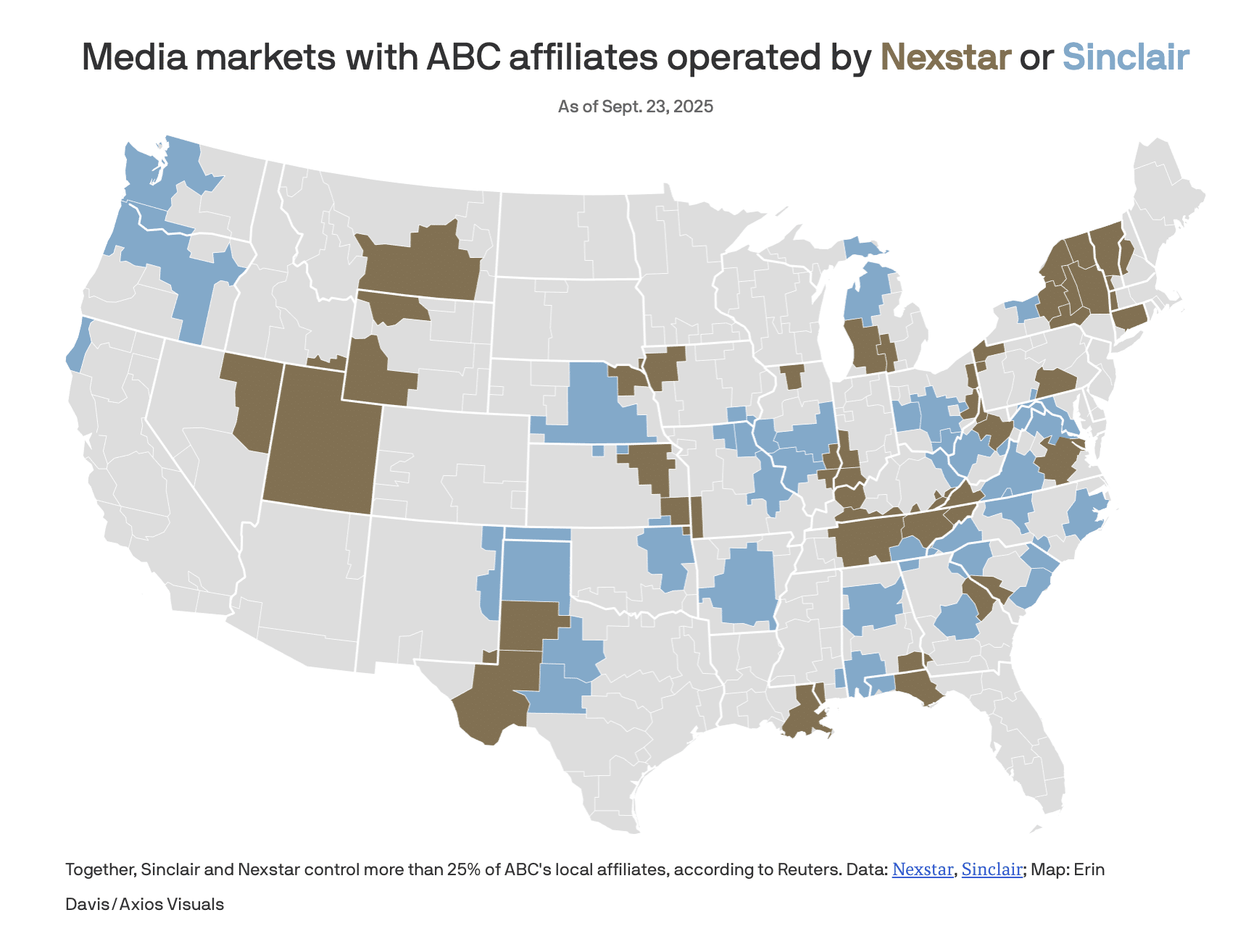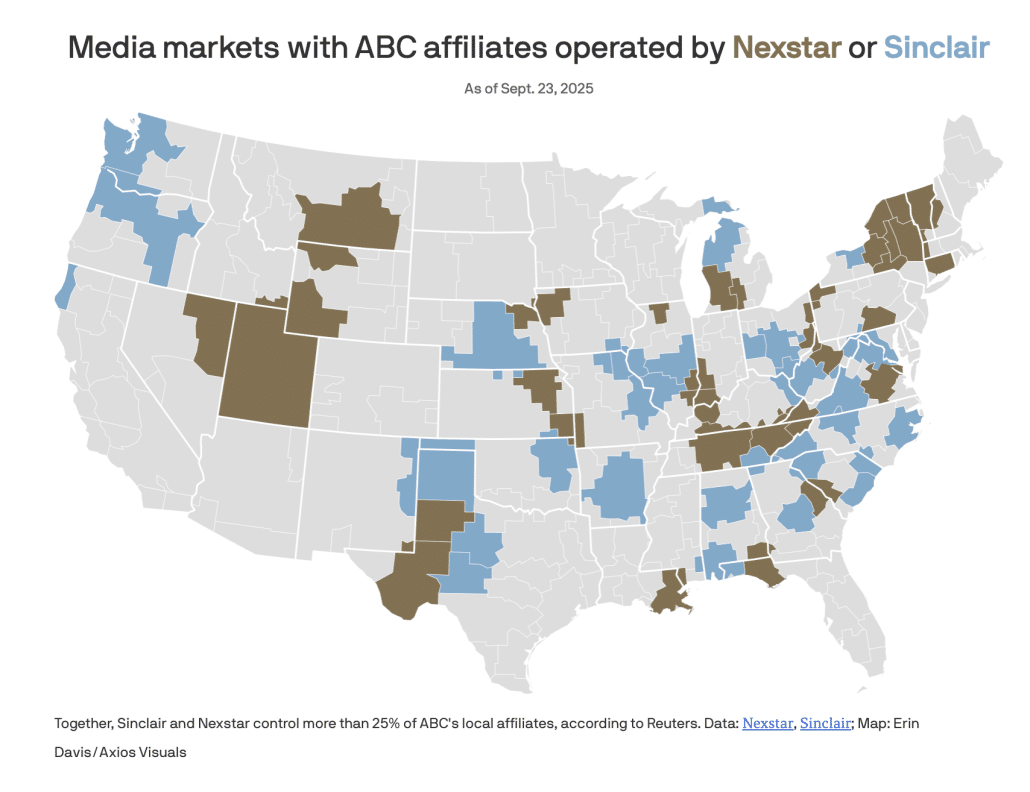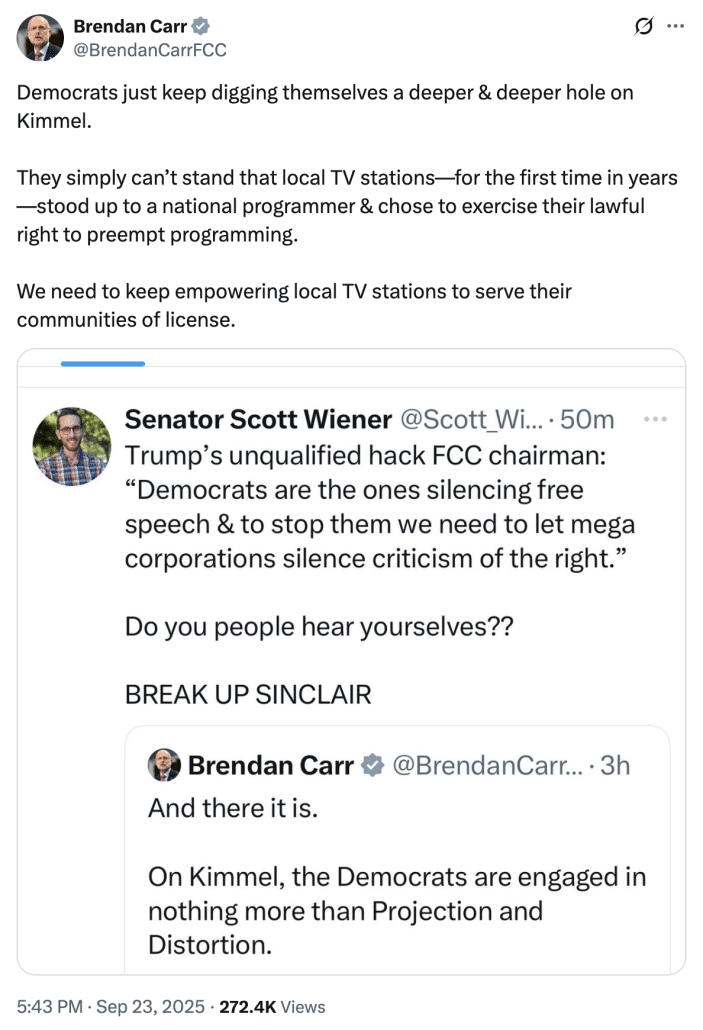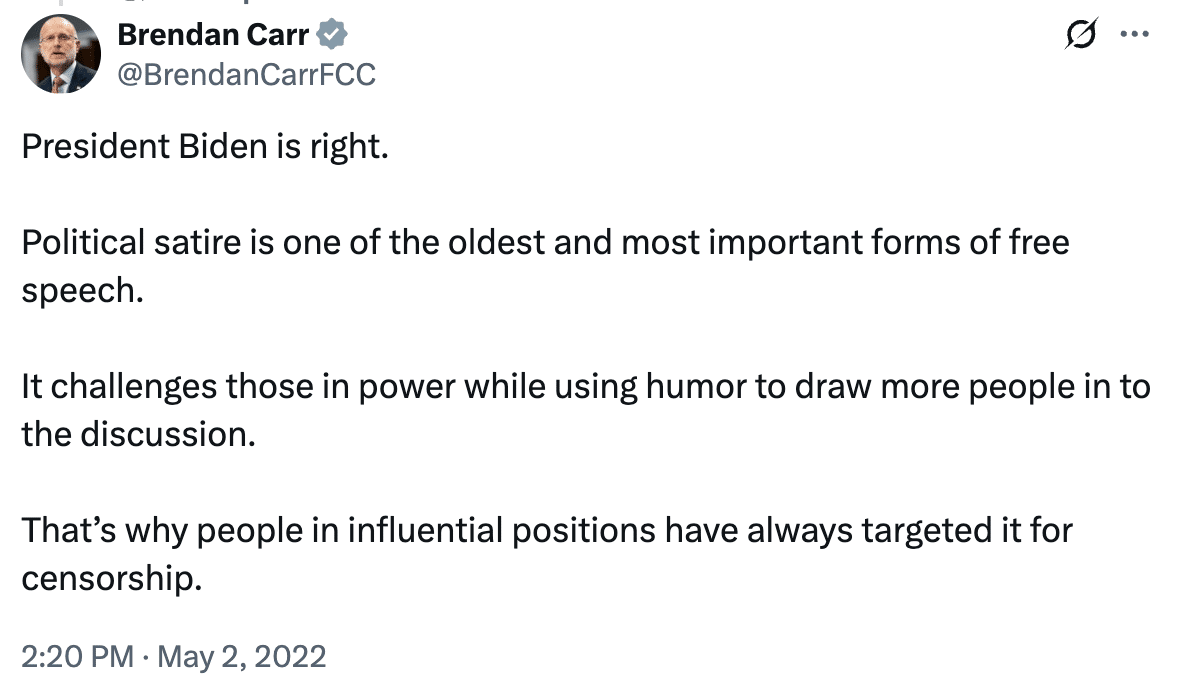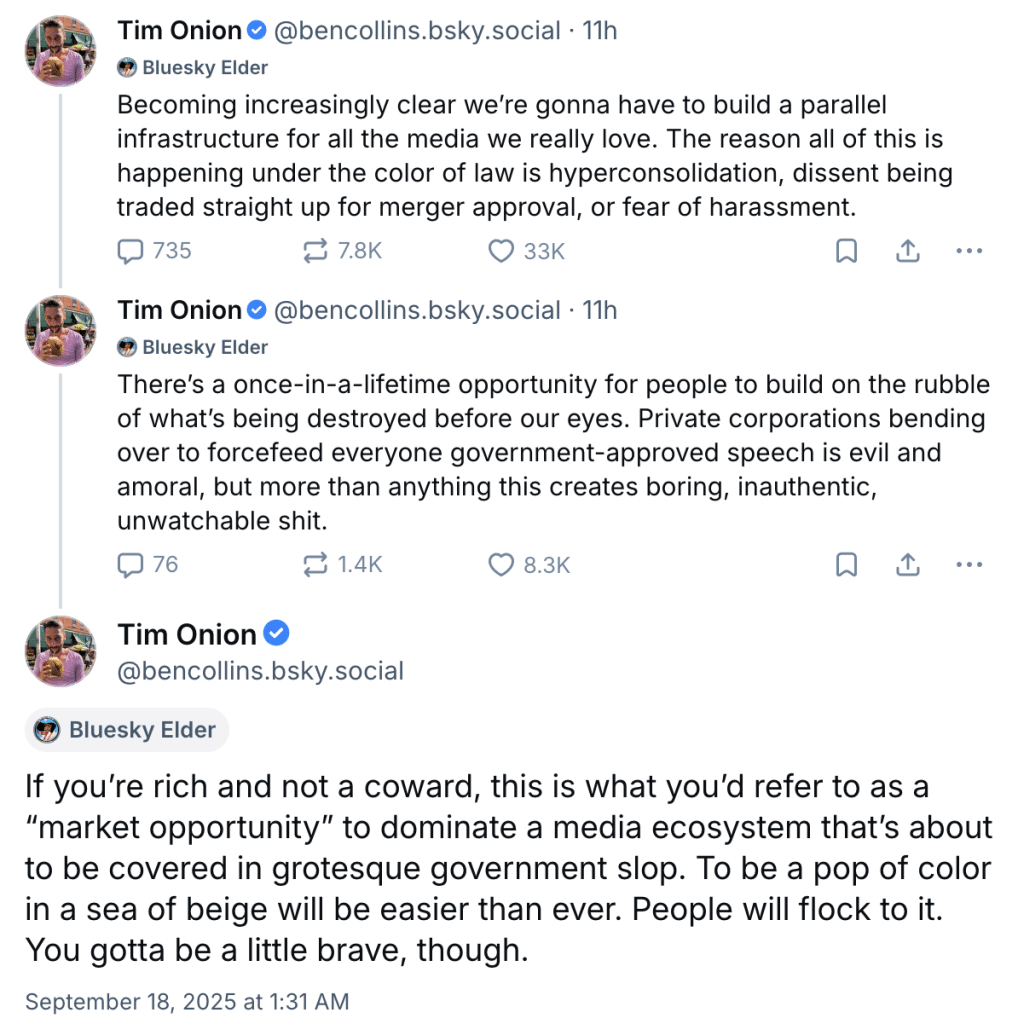Sinclair Makes Itself Visible
Congratulations to Jimmy Kimmel, whose show a right wing cabal turned into a resistance icon.
For some time, I’ve been noting that Donald Trump has chosen his political martyrs poorly. Every person he takes out in his authoritarian abuse could serve as one more person who will inspire others to fight back.
Now’s a good time to subscribe to Kimmel’s YouTube channel, to strengthen his ability to bypass gatekeepers the next time this happens.
In his monologue, Kimmel did not pull punches. He called out Trump’s efforts to target his show because he is thin-skinned, then mocked both Trump’s escalator failure at the UN and his screed against Tylenol. He noted he was not on the air in Seattle, DC, Nashville, New Orleans, Portland, Salt Lake, and St. Louis, where Sinclair or Nexstar refused to show it, then returned to efforts to coerce ABC affiliates not to air his show. He explicitly called out Brendan Carr, highlighting his flipflop on free speech since 2022. He joked that the US had become more authoritarian than Germany.
He choked up when he addressed his comments about Charlie Kirk’s death.
By refusing to air the show (and with Kimmel’s allusions to them, though he did not name them), Sinclair and Nexstar made themselves visible in a way they were not to most consumers.
This article describes some of the tension between the local outlets and the networks.
Local TV outlets receive retransmission payments from cable and satellite operators, and the networks take a cut of those retrans dollars. (That money sent to the networks is called “reverse compensation,” because once upon a time, the networks used to pay its affiliates to carry its lineups. Now, it’s the reverse and stations pay the networks.)
But affiliates have grown concerned that networks are demanding too much of that retrans money. Right now, most stations pay fixed fees to networks for the right to carry their fare (including sports), but as the payments local stations receive from pay-TV distributors declines, they’re looking for a more variable payment model with the networks.
At the FCC, Carr has been quick to highlight the growing tension between national network operations attached to media giants and the interests of local station owners.
Did the Nexstar/Sinclair gambit work? Perhaps, at least in winning over Carr, who thanked Nexstar on social media “for doing the right thing,” seemingly putting the company in the FCC’s good graces. It was already likely this administration would lift or raise the ownership cap; now that Nexstar and Sinclair have found favor with Carr and Trump, it’s probably a done deal.
But this week’s events also now put Nexstar and Sinclair right in the middle of a national conversation about free speech and the First Amendment — and many more people who hadn’t heard of those companies before now see them as opponents in the free speech debate. That could lead to more push back from the public, guilds, unions and other entities that might aggressively fight against the idea of abolishing the station cap.
Carr has already weighed in on the side of local stations.
If you live in one of the areas where those right wing corporations are abusing their access, you can push back in two ways. First, figure out who advertised on the alternative programming last night and/or the station’s top advertisers. Then call those advertisers and tell them that you are unhappy they had a role in silencing Kimmel. After that, call the station and tell them you’re going to hold the programming decision against them and their advertisers.
ABC caved because of consumer (and also labor) pressure, and now that Sinclair and Nexstar have made themselves visible to consumers, they can be pressured in the same way.
Meanwhile, in the President’s renewed threat against ABC and Kimmel, Trump:
- Confirmed that he was involved the aborted attempt to fire Kimmel
- Whined about ratings again, like a bitter old canceled Reality TV host
- Threatened to sue
The two outbursts together — Carr’s politicization of this and Trump’s confirmation he was personally involved — will make it easier to claim that both are jawboning ABC about Kimmel, a violation of the First Amendment even this Supreme Court recently confirmed.
Now is not a time to declare victory. Now is the time to use the notoriety that the censoring screeds have acquired to push back on their efforts to extort control over free speech.
Update: On Friday, Sinclair and Nexstar capitulated.

